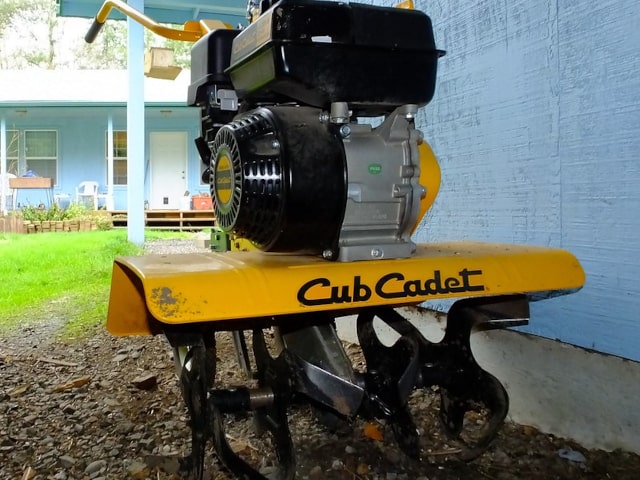
Some beginner gardeners think that using a rototiller is necessary. A rototiller is sometimes seen as an integral tool in the garden. However, it can actually do more harm than help. There are reasons to avoid using a rototiller for your garden.
Many people believe that a rototiller can save you a lot of time and that you need one to have a great garden. This is a misconception. Not owning a rototiller can actually save you a lot of time, money and gardening work. You will obviously save money by not having to buy and maintain a tiller, but that's not all. You will actually save time and work by not owning one. A rototiller can cause a lot of harm to your garden's soil structure, which will in turn make more work for you. You will encounter numerous maintenance problems in the garden if you use a tiller.
Experts point at four main reasons why using a rototiller is not recommended: a rototiller can cause soil compaction, create more weeds, make the "bare soil" problem and can delay gardening season. For these reasons, it's best not to use it in your garden.
Soil Compaction
A rototiller can cause soil compaction. Remember, healthy soil is all about its structure. It takes on the components of good compost and uses all of the microbial life and structure. Good soil is the one teamed with all types of organic matter in different stages of decay. These bits of organic matter also allow for water, nutrients and air to be carried down through the soil, all the way to your plants. This is why all great soils are filled with beneficial bacteria, worms and microorganisms. These organisms play a vital role in bringing nutrients to your plants.
Tilling your soil can ruin all of this, especially if it's tilled over and over. Tilling destroys this important structure. The life in the soil is disrupted and exposed, so the soil becomes reduced to lifeless, sterile dirt. Without its structure, the soil becomes compacted around the roots of your plants, which means that nutrients can't get to the plants. It also makes it more difficult for water and air to reach the plants. Bad structure also makes the soil difficult to retain moisture.
Also, regardless of the type of the tiller you might have, you still have to walk behind it or beside it, which means you will contribute to even more compacting of the soil. This is the first reason why it's best to avoid a rototiller in your garden.
More Weeds
Rototillera create more weeds. Mulching is always a better option than tilling between rows. Mulching keeps the moisture and keep the weeds away. A tiller will cause more weeds than it's able to eliminate. When you run a tiller through your garden or walking rows, they flip the soil. With the soil, they are also flipping hundreds or even thousands of weed seeds.
This make them them distributed all over your garden. Many of them get a chance to germinate, which will soon double if not triple the amount of weeds you have in the garden.
"Bare Soil"
Another problem with rototillers is that they create the so-called "bare soil" problem. This makes easy for soil erosion to occur, which leads to numerous problems (including even more weeds). Cover crops can solve this problem, but it's best not to get into trouble. This is why you should avoid tilling the garden soil.
Bare soil is trouble. You should never have any of your garden soil or the row soil exposed. Exposed (barren) soil can easily be eroded by wind and rain. They are also a great surface for weeds.
This is why you should always have your soil covered with natural mulch, such as straw or shredded leaves in the rows and around the plants. This keeps the soil both covered and mulched, thus preventing erosion and weeds.
Another thing you can do to protect your soil is to use cover crops in fall and winter. The best combination is mulch in spring and summer and cover crops in the cold months.They will take over and provide protection.
Nicely tilled rows between the garden may look "good", but they actually only create trouble. This is why tilling should be avoided.
Delaying Gardening Season
Finally, you should avoid tilling because it can delay gardening season. There are many early season crops, such as radishes and lettuce, that can go in the ground pretty early in raised row beds.
However, tillers can't be used in the soil until late spring because the soil tends to be wet. This is why these people need to wait until the soil can be tilled with a rototiller. If you avoid tillers you can start your plants earlier. Not to mention that soil structure drains much better without a tiller so it can be worked sooner.
Also, tilling at the wrong time can cause serious damages to your soil. If you tile a wet soil you will only create mud. If you tile a dry soil, the tiller will totally destroy the soil's structure. This in turns lead to numerous problems so it's best to be avoided.
In Conclusion
A rototiller creates unnecessary problems and a lot of mess. It will create more work for you, so it's best to be avoided. Without a tiler, you can actually have a nice, low-maintenance garden.
Regardless of the type of your garden (raised row, raised bed, traditional garden plot, etc.), the more you leave the soil alone, the better. Undisturbed soil gives the best results and makes the best soil for your plants.
It's also easier to maintain. For example, it takes only about 10 to 15 minutes a day to keep a low-maintenance garden completely weed-free. This is just one advantage to having undisturbed soil in your garden. Avoid rototillers and you will have healthy, low-maintenance soil that's perfect for your plants.
Photo credit: Linda, Fortuna future
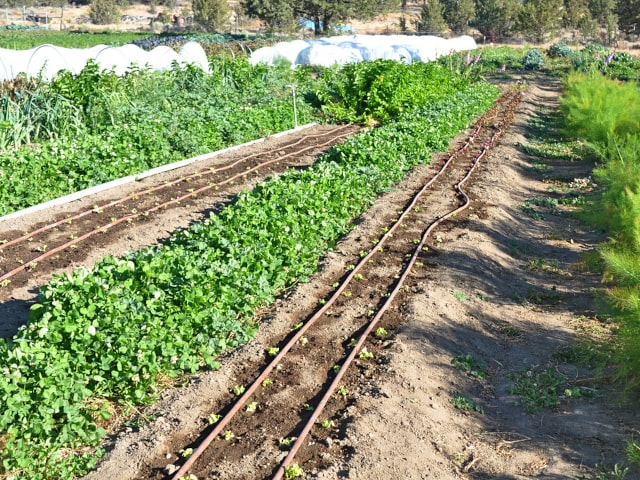
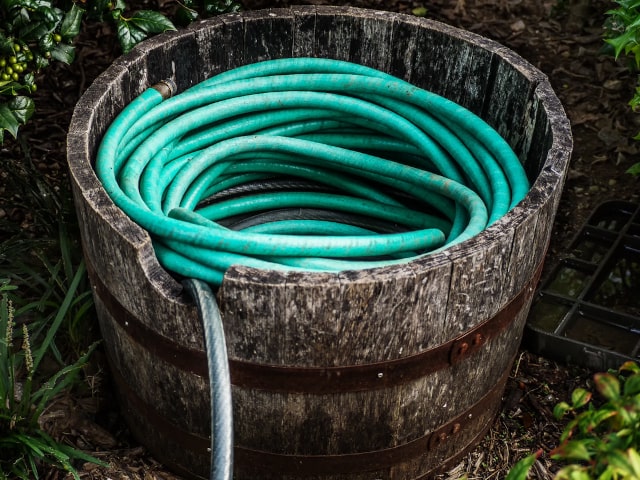
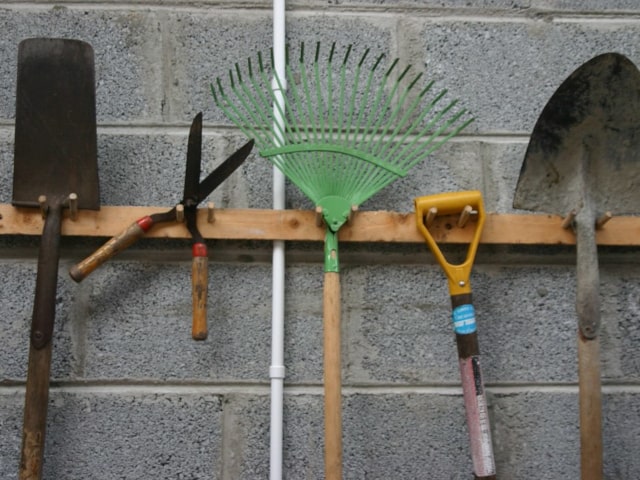
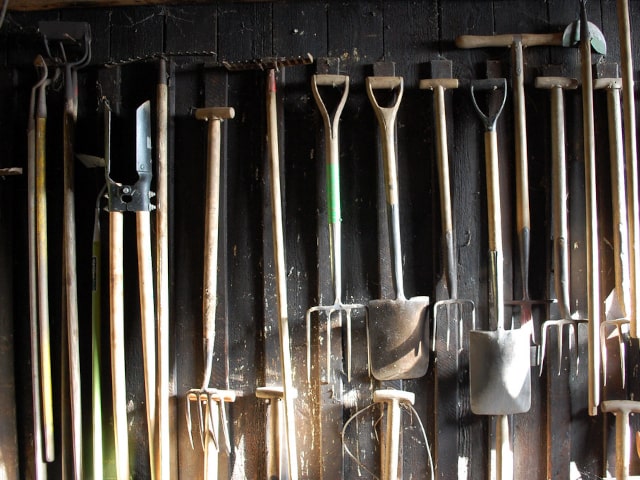
8 Comments
Can I use a rototiller in the sand?
There's a right and wrong way for every type of soil, climate, and crop. No till may be best, rototilling may be best. There is no single answer.
Some of the points stated are valid, some are not. There are pros and cons to no-till gardening. This article is only one side of the story.
What if you are starting out with a bare, hard-packed clay soil that has very little plant material, mostly weeds? Wouldn't it be good to introduce amendment, adding organic matter before you start gardening in this soil? I have been following the work of Dr. Elaine Ingham, an accomplished soil microbiologist recently. Her emphasis is on having the right soil biological organisms. So, I am a little confused.
Your conclusions are just plain wrong on a lot of levels. Filled with theory but little practical experience to back it up.
1. Millions of people rototilling decades upon decades and growing great gardens.
2. Rototilling creates an even mixture of nutrients throughout the soil.
3. Rototilling areates the soil.
4. Rototilling breaks up clay and allows water to drain into the soil and not have excessive run off.
5. Rototilling is perfect for controlling weeds without the use of chemical herbicides.
6. Rototilling helps breakdown composted plant matter.
Rototilling is a very good thing.
Last year 2017 My vegetable garden did okay. I harvested squash, zucchini, and tomatoes. I have rows of raised soil beds. I walk between the rows that are at least 10" high. I used a broad rake to break and loosen the soil. This year nothing seems to grow. I usually top the garden after the growing season with horse manure and let it over winter. Then in the spring I turn it over by using a spade fork by hand. I did not do it for the 2018 season. Should I continue in the horse manure over winter or do you have another solution. Thank you for your time in reading this message.